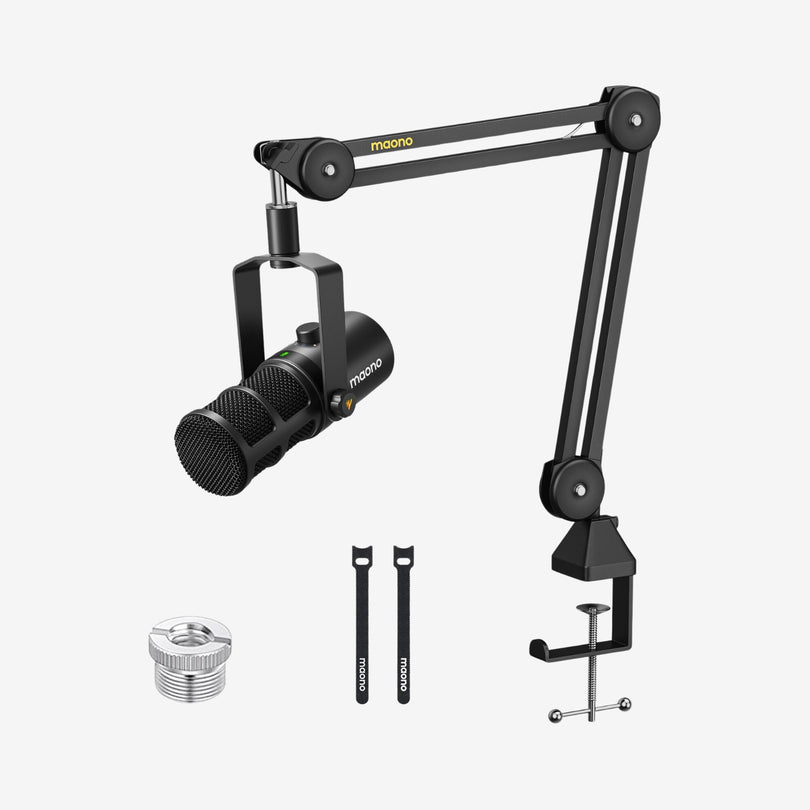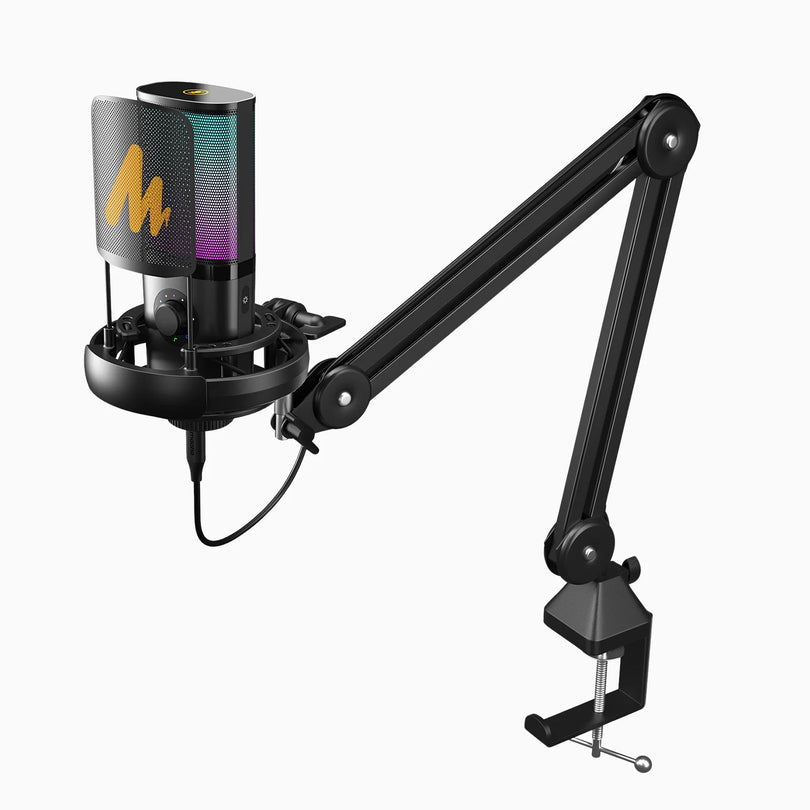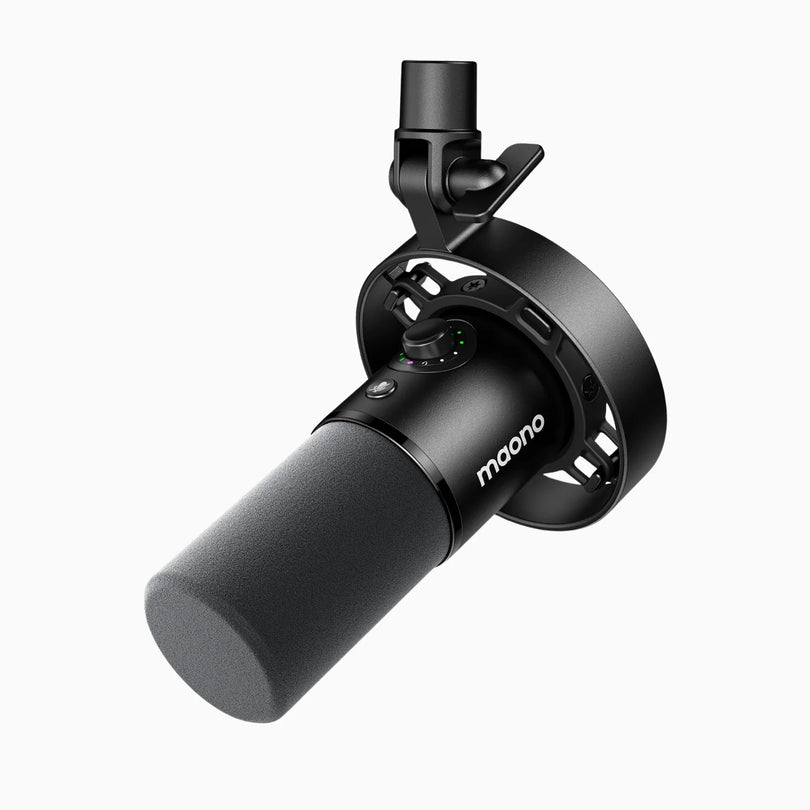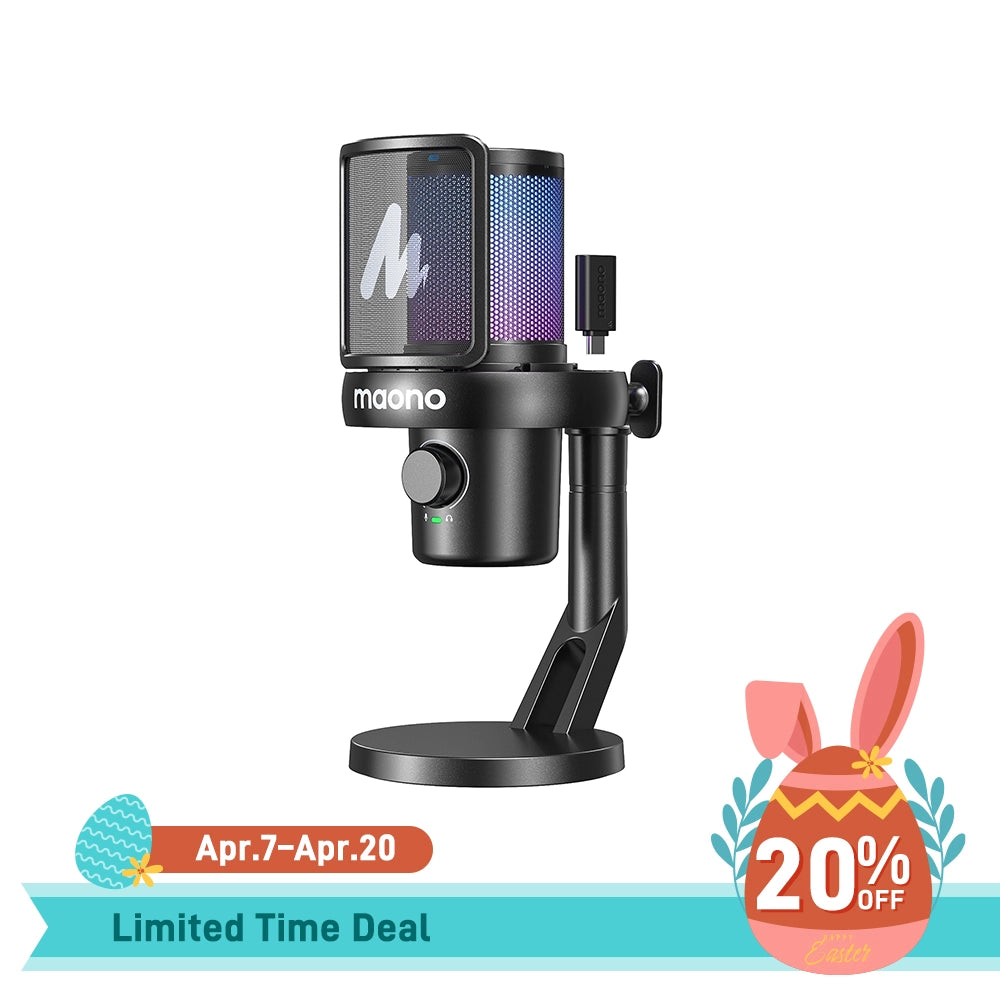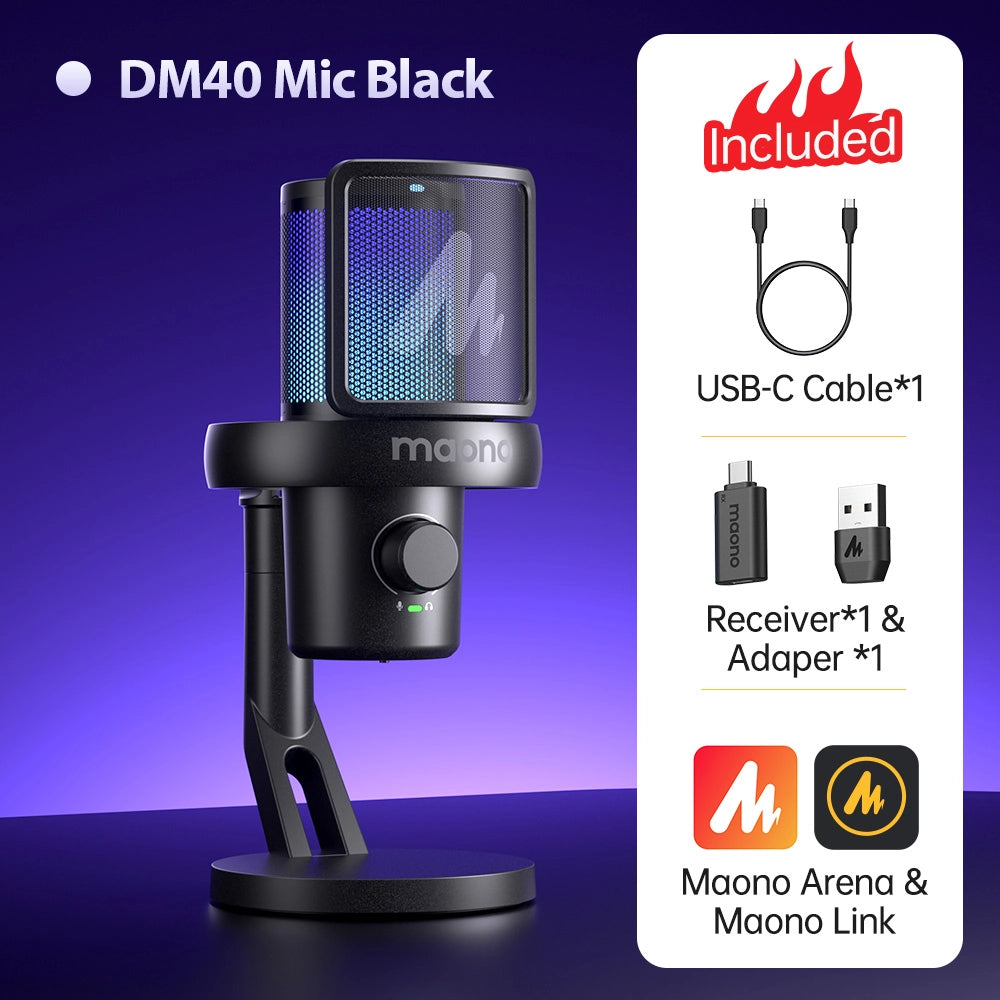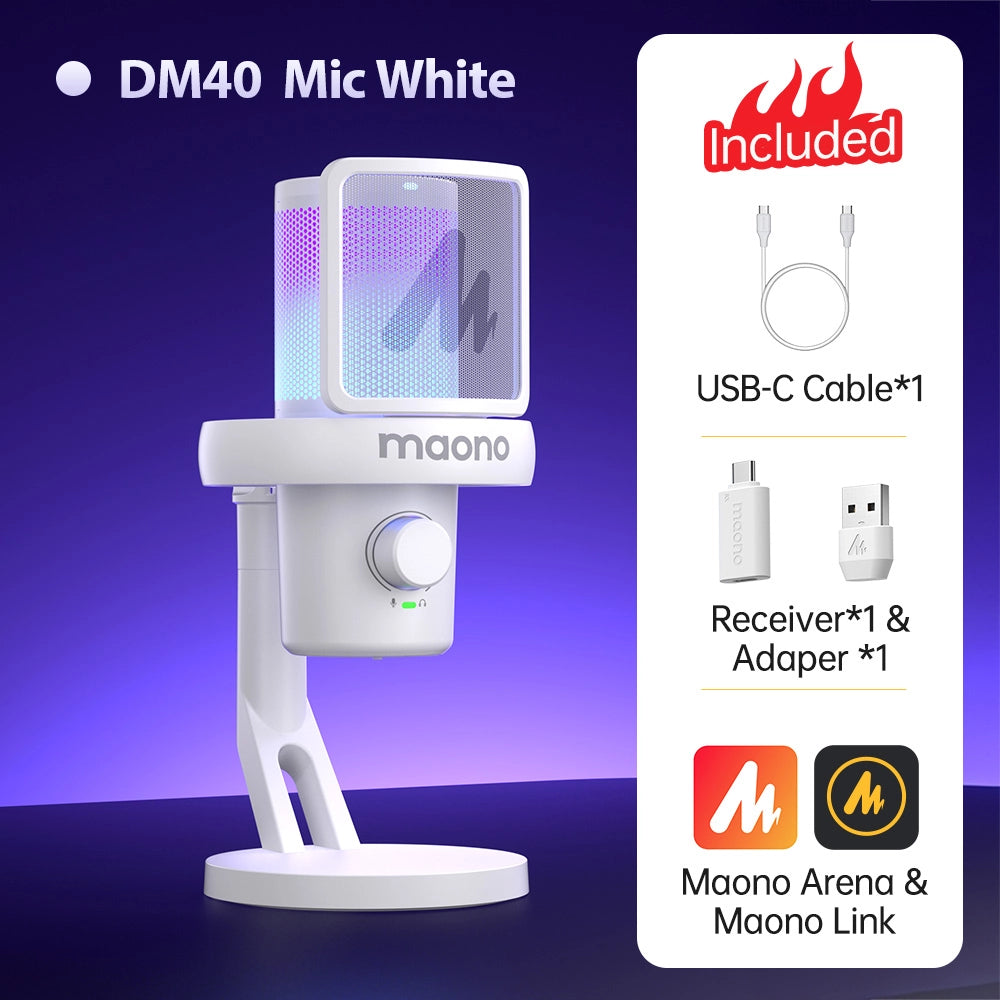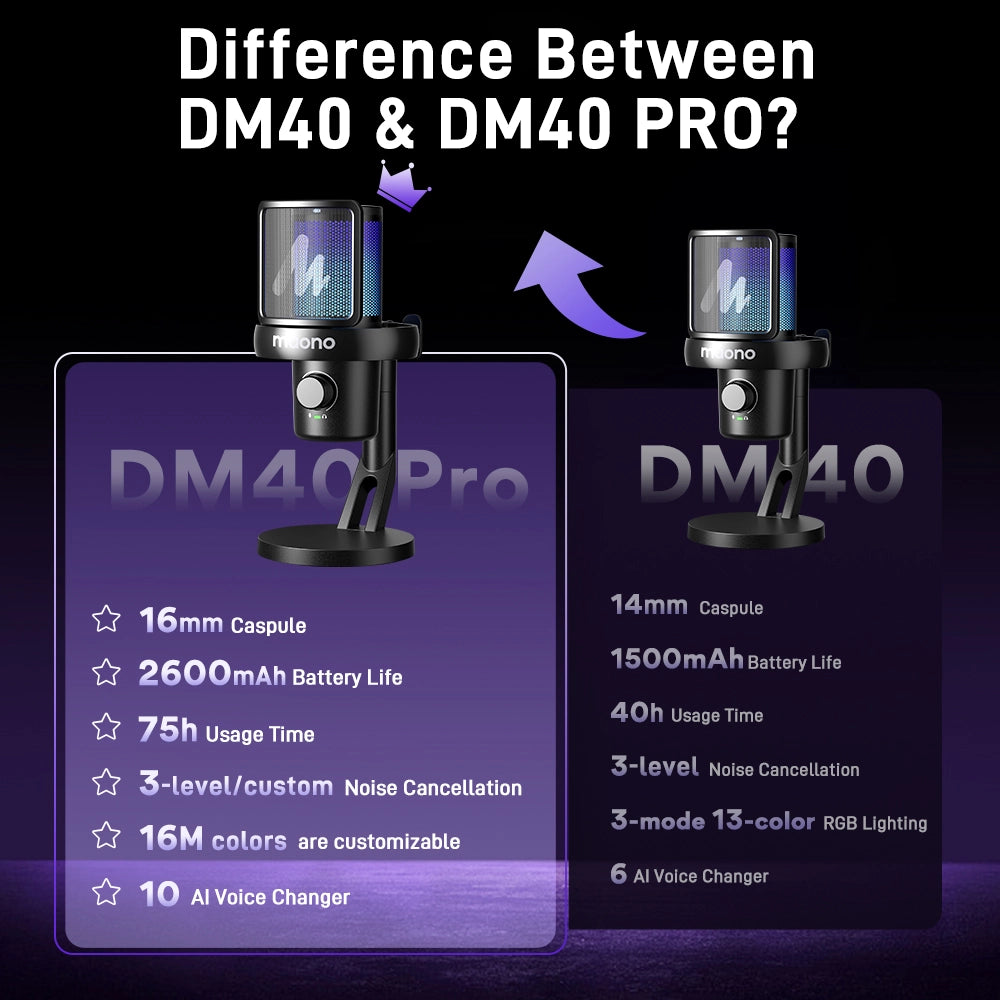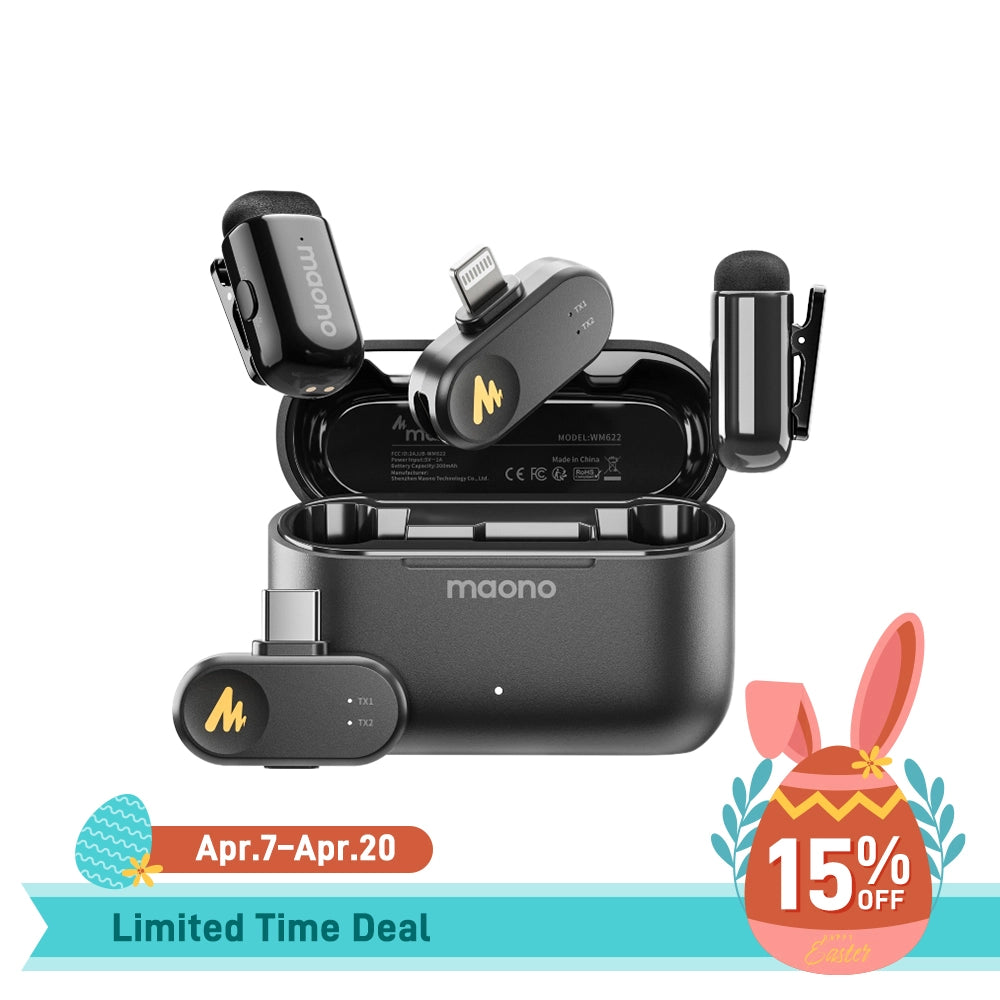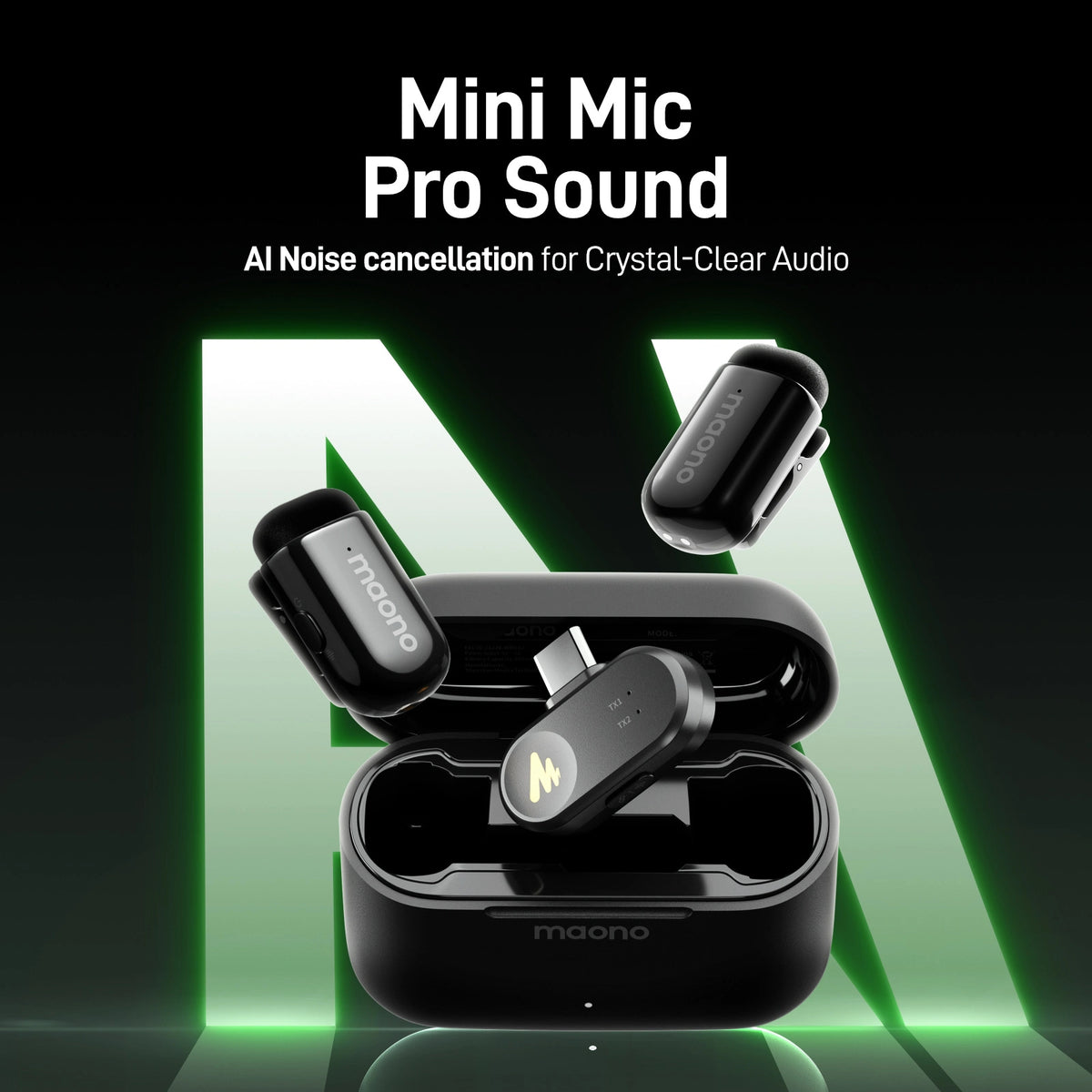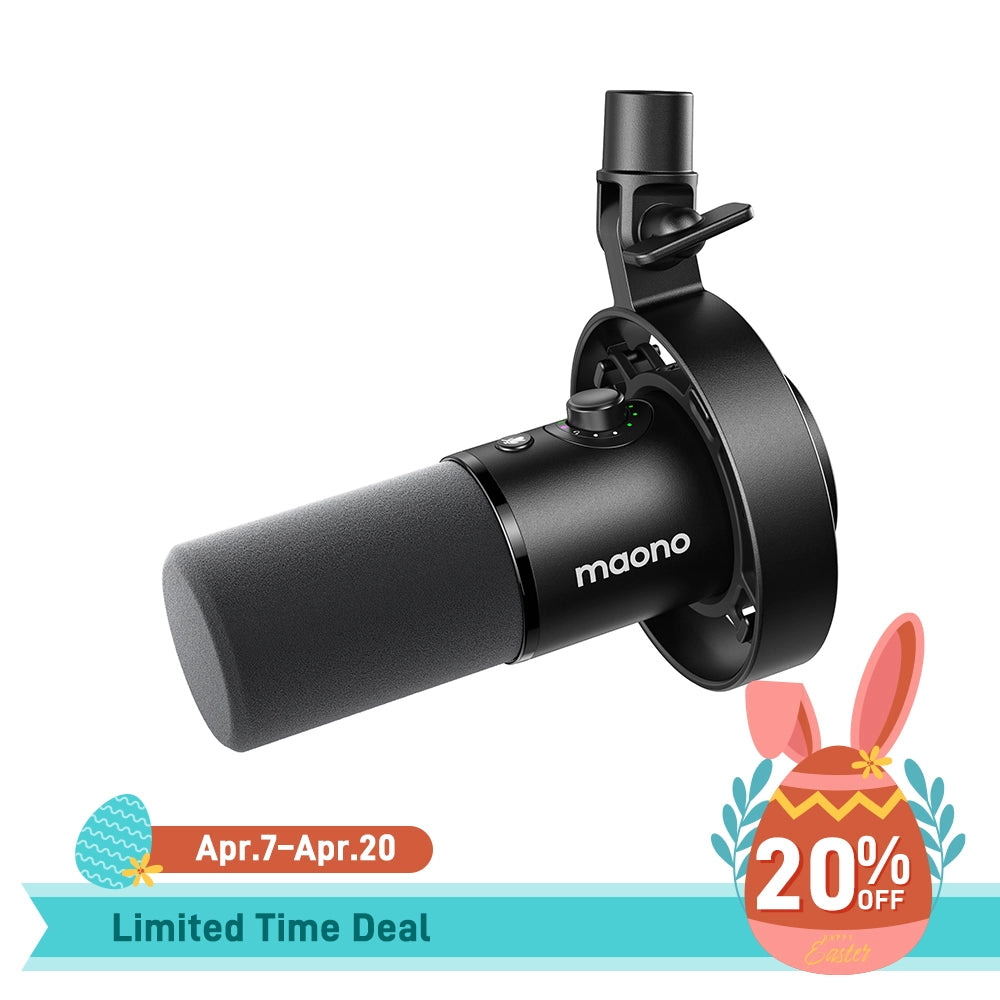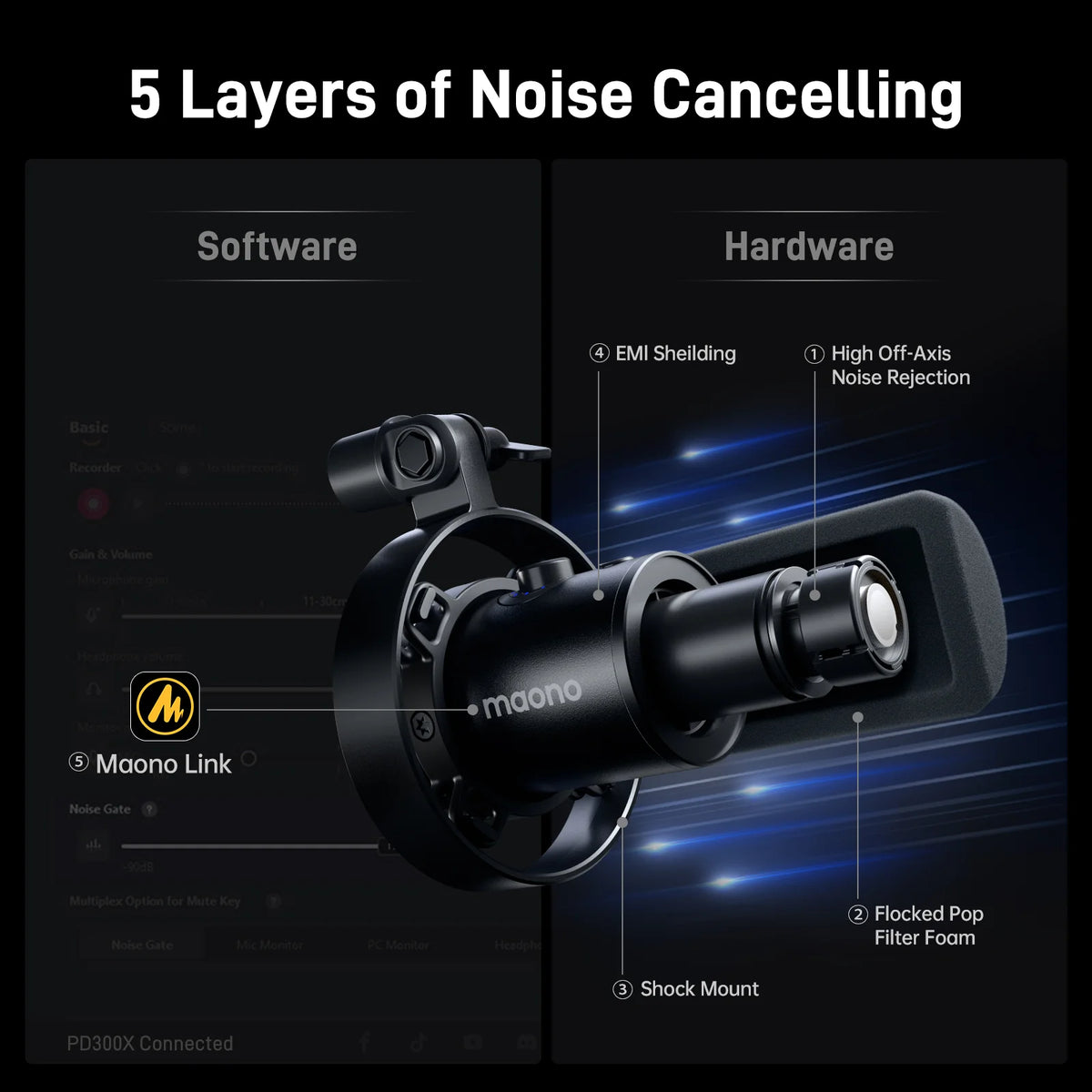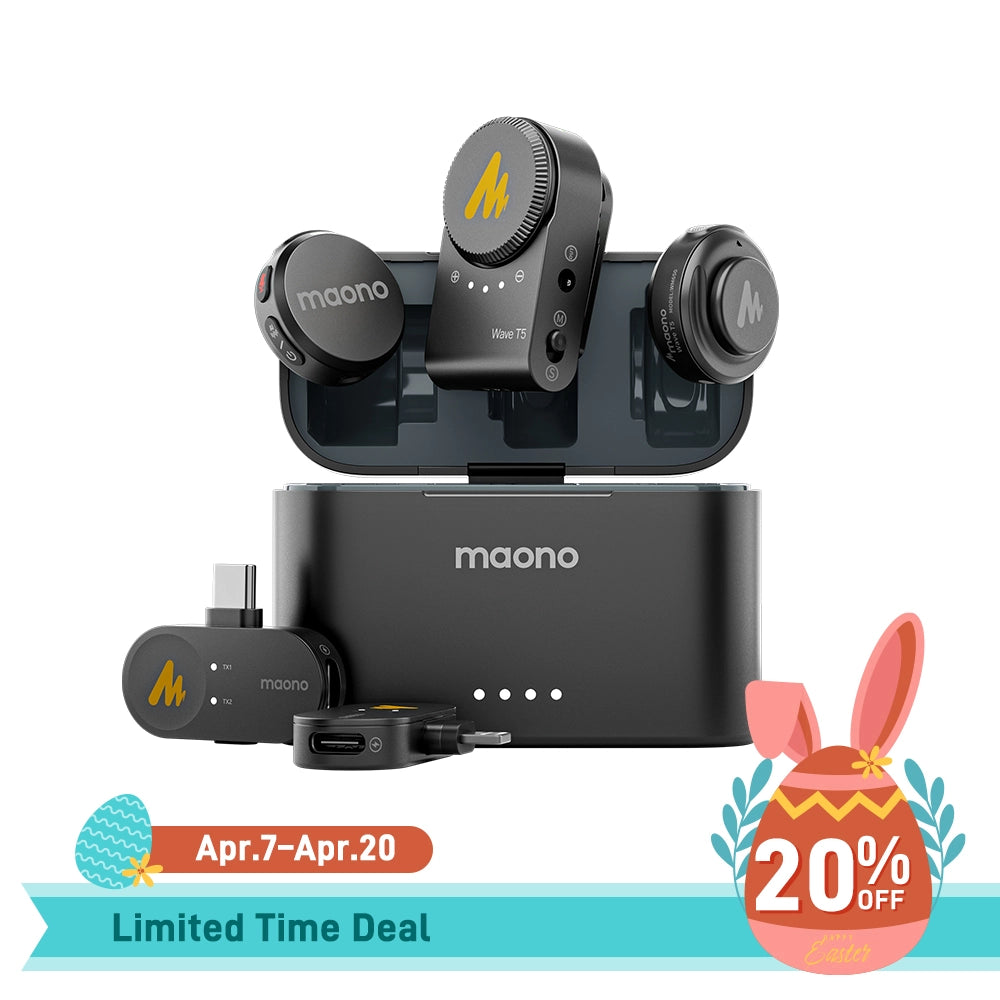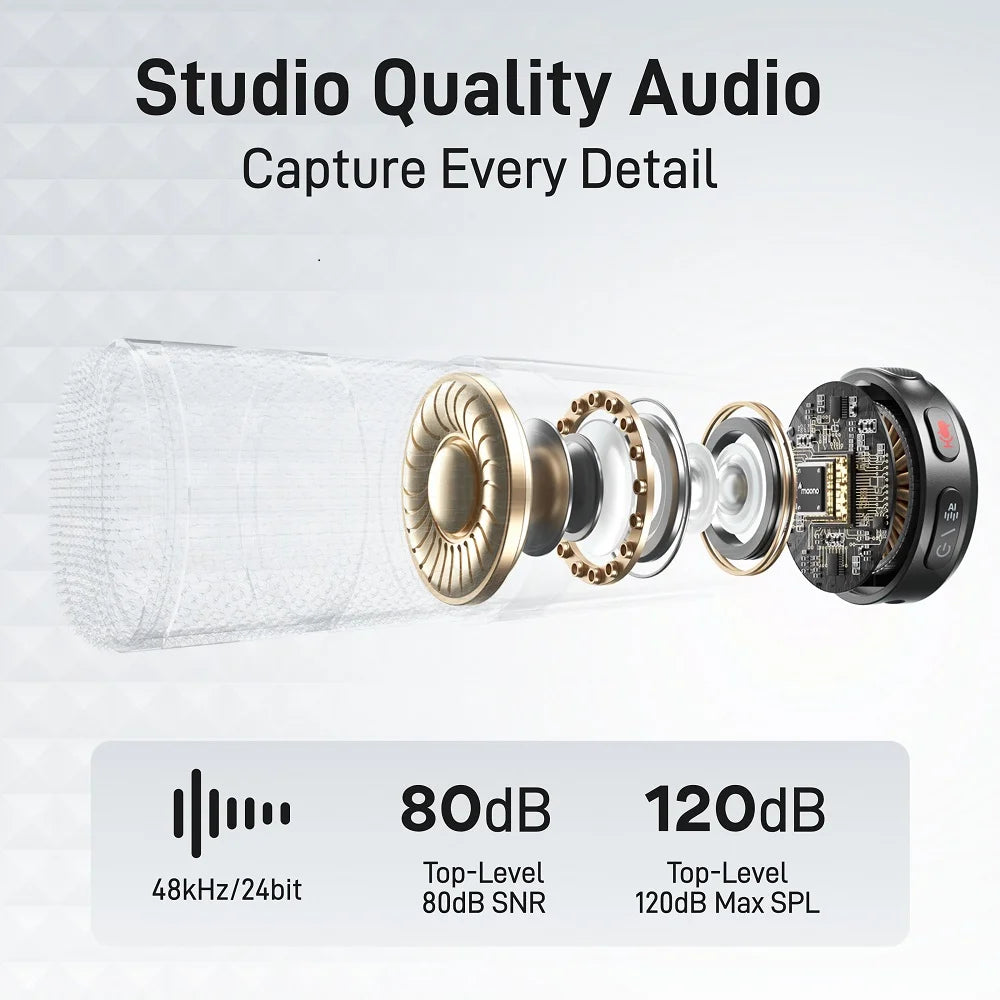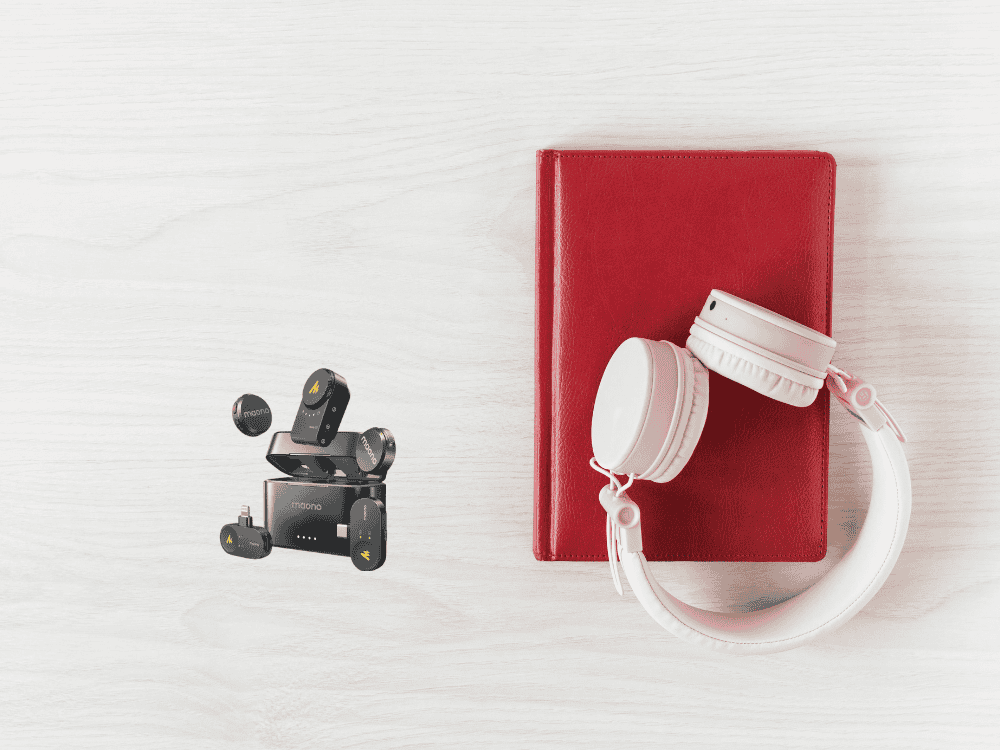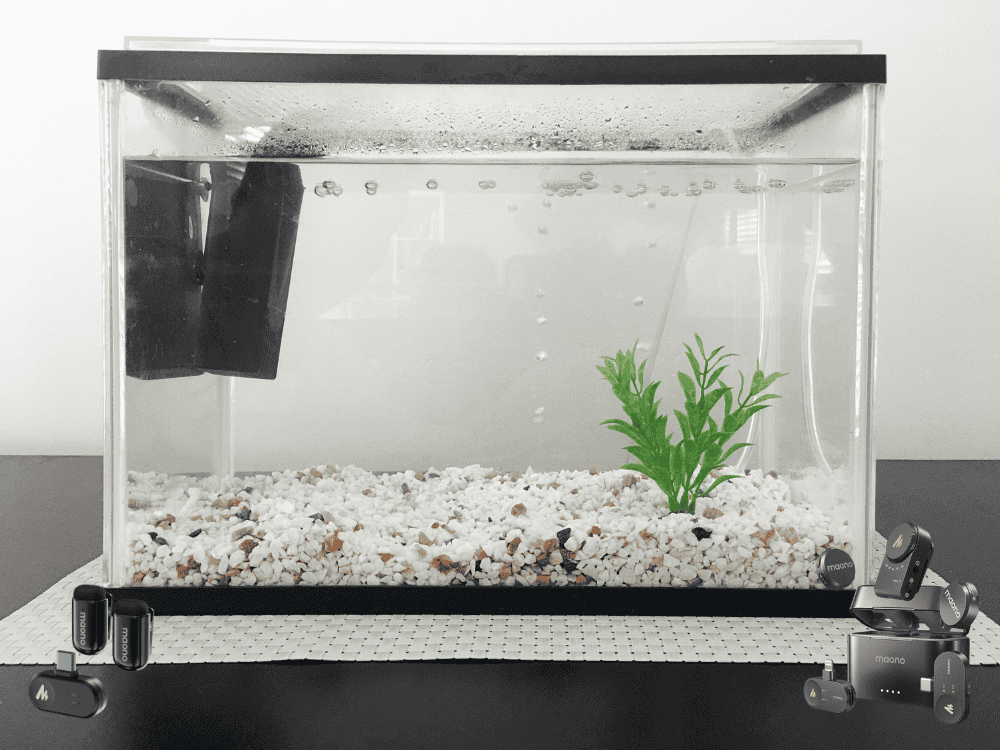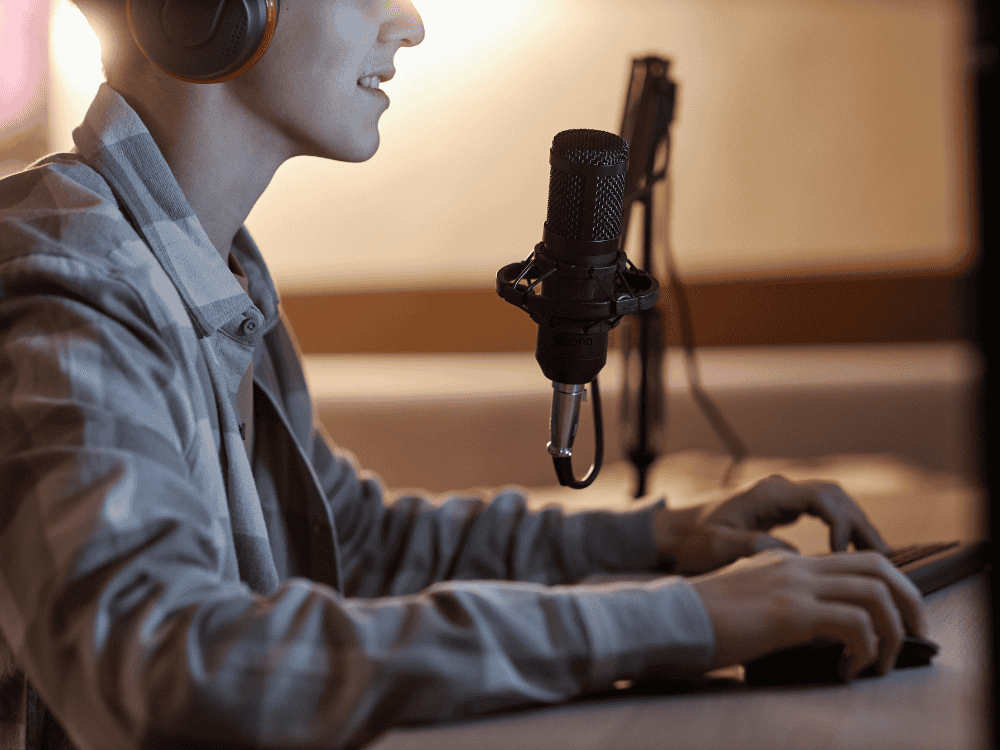Struggling with poor audio quality in your DSLR videos can be frustrating, especially when your visuals are on point. If you’ve ever felt that your DSLR footage lacks the crisp, clear sound it deserves, you’re not alone. The right microphone can transform your recordings from mediocre to professional, making it essential to find the best DSLR microphone for your needs.
The best lavalier lapel microphone is the one that will give you excellent audio quality, whether you're creating content, listening to music, or conducting an interview for a podcast. WM820 and WM821 are Maono's creation from theirs splendid collection of lavalier microphones will allow you to move around freely and free your hands while working on that vlog, presentation, or interview for your podcast. In this guide, we’ll explore top-rated lavalier mics that promise to elevate your audio game and ensure every word and nuance is captured perfectly, highlighting top picks and Maono lavalier mics that enhance your recording setup.
In case you are hosting gatherings, conducting tutorials, or planning recordings for YouTube, having a lavalier mic for your DSLR camera is essential. While there are various wireless lavalier mics available, only some are compatible with your DSLR camera directly. Others may require a separate DSLR audio adapter. A lavalier mic for DSLR is popular among professional DSLR video creators due to its small footprint. Some can be easily worn around your neck without hassle during portrait sessions.
Considering all the factors mentioned above, I’ve selected some of the best lavalier lapel microphones that can enhance your DSLR for high-quality sound recording. Let's dive in. Here are our picks!
Top DSLR Microphones for High-Quality Audio

1. Maono WM820 A1/A2 Compact Wireless Microphone System - Best Budget Lavalier Microphone for DSLR Cameras
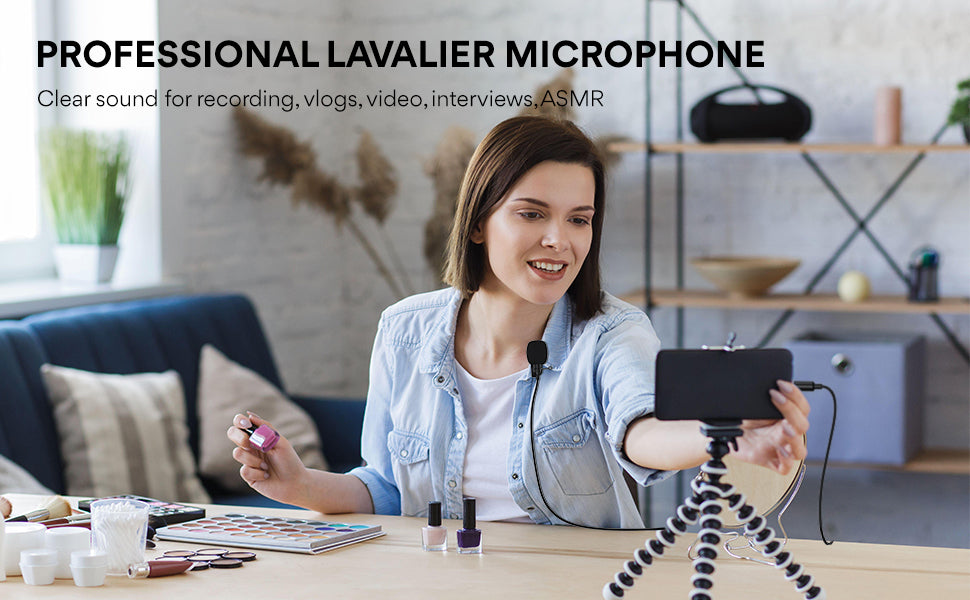
The Maono WM820 is a wireless lavalier microphone system designed for capturing clear and professional audio. It features an omnidirectional polar pattern that picks up sound from all directions, making it suitable for dynamic speaking environments. The Ultra-high frequency (UHF) wireless system allows for reliable transmission over a moderate distance, and the receiver’s LCD display helps monitor signal strength and battery levels.
Pros:
✅ Wireless functionality for freedom of movement
✅ Compact and easy to clip on
✅ Good battery life
✅ Includes a receiver with a built-in display for monitoring
Cons:
❌ Limited frequency response range compared to some other mics
Features:
WM820 A1/A2is ultra-compact lavalier mic that's versatile and wireless. Its universally compatible with computers and mobile devices and with DSLR cameras (up to 164 ft line of sight). It comes with an easy adjustable 6-level mic gain control, zero-latency monitoring, and one key mute control. Polar pattern pickup is omnidirectional with external lavalier microphone frequency response of 50Hz-18kHz, while its built-in mic frequency response is 80 Hx-16kHz, creating an outstanding sound quality.
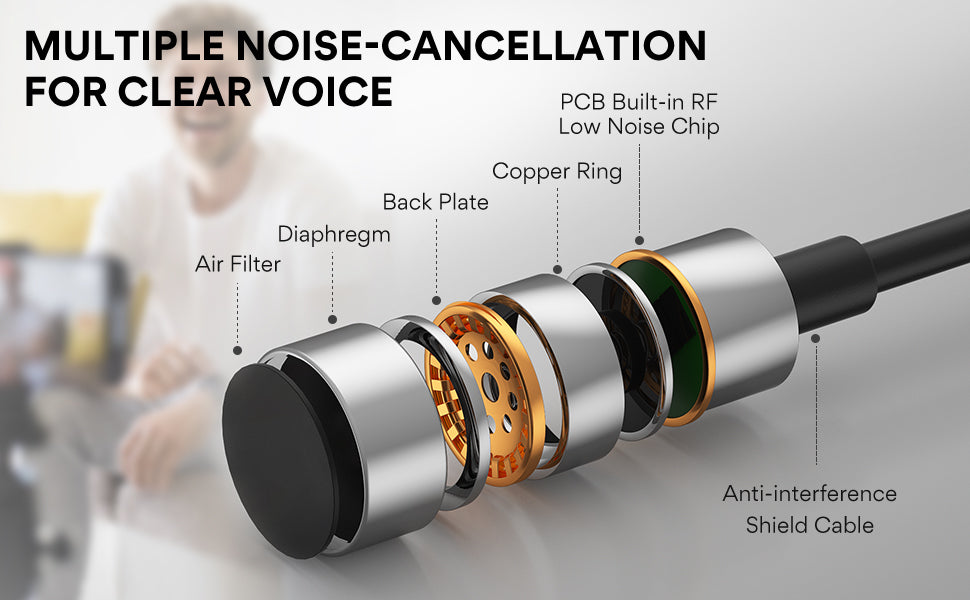

2. Maono WM821 - Best Wireless Lavalier Lapel Microphone
The Maono WM821 is an advanced wireless lavalier microphone designed for high-quality audio capture. With a broad frequency response range and an omnidirectional polar pattern, it ensures clear and accurate audio recording in various settings. The system includes a transmitter and receiver, both of which are compact and easy to use, making it ideal for professional applications such as interviews and presentations.
Pros:
✅ Wide frequency response range
✅ High audio quality with minimal distortion
✅ Compact and lightweight
✅ Includes a high-quality receiver and transmitter
Cons:
❌ May be susceptible to interference in dense RF environments
Features:
WM821 features MNCT denoise technology and a professional audio chip that delivers a clear, natural sound. You can use it as a clip on mic or belt pack for a headset or lavalier mic, and it comes with multiple accessories such as the clip for secure attachment, and fur windshield to prevent plosives and for noise reduction. Plus, it has a signal to noise ratio of 82dB and the battery lasts for up to 20 hours.
3. Sennheiser AVX MKE2
The Sennheiser AVX MKE2 is a high-end wireless lavalier microphone system renowned for its superior audio quality and ease of use. It features a broad frequency response range and an omnidirectional polar pattern, making it suitable for a wide range of professional applications. The system offers secure audio transmission with AES-256 encryption and features automatic frequency management, which helps to avoid interference and ensures a reliable performance in various environments.
Pros:
✅ Excellent audio quality with a wide frequency range
✅ Reliable wireless transmission with AES-256 encryption
✅ Compact and user-friendly
✅ Automatic frequency management and simple setup
Cons:
❌ Higher price point compared to some other lavalier mics
❌ Requires compatible receivers and transmitters for full functionality
Features:
Sennheiser AVX MKE2 AVX features wireless system with adaptive transmission, integrated AES-256 encryption for secure audio transmission, an easy plug-and-play setup, and it includes a variety of accessories for different mounting options.
FAQs
1. What are the different types of external microphones for DSLR camera?
It's important to understand the three primary categories of external microphones. Since it all relies on your unique needs and preferences, there is no better type than the other.
2. Why do I need an external mic for DSLR?
You might be asking yourself why you need to spend extra money since your DSLR comes equipped with a microphone. Although using an external microphone is entirely optional, it is advised due to the significant improvement it will bring to the sound quality of your recording.
3. What mic is good for a DSLR?
Depending on your preferences and budget constraints, the answer may vary. The solutions we've listed above are all excellent choices that work well in a variety of shooting situations.
4. How do I add an external microphone to my camera?
This depends upon the kind of microphone you choose. If you choose a shotgun mic, you attach it to the microphone input on your DSLR by mounting it on the top of the camera.
The method for connecting a portable or lav microphone is going to be a little different. Either use the audio input on the DSLR to link the receiver to your microphone, or use an external mixer to connect to both your camera and microphone.
You can simply purchase an adaptor to connect your DSLR to an XLR microphone if you already own one.
5. Why Choose a Camera Lavalier Microphone for DSLR Cameras
Choosing a camera lavalier microphone for DSLR cameras ensures clear, professional audio capture while minimizing background noise and distractions. These lapel mics are designed to clip discreetly to the speaker's clothing, providing consistent sound quality even in dynamic environments. Their compact size and directional pickup pattern make them ideal for recording dialogue or interviews without the bulk of traditional microphones.
6. How to Choose the best DSLR Microphone
When choosing the best microphone for your DSLR, it’s crucial to consider several key factors to ensure optimal audio quality. Here’s a quick guide to help you make an informed decision:
Sensitivity
Sensitivity refers to how well a microphone picks up sound. For DSLR use, a microphone with high sensitivity is ideal for capturing detailed audio. Look for microphones with adjustable sensitivity settings so you can tailor the audio capture to your specific needs, whether you’re recording a quiet interview or a dynamic scene.
Frequency Response
Frequency response indicates the range of sounds a microphone can capture. A microphone with a broad frequency response will handle both low and high frequencies more effectively, resulting in clearer and more natural sound. For most DSLR applications, a frequency response of 20Hz to 20kHz is sufficient, but if you need to capture a wide range of sounds, consider a mic with an extended range.
Connectivity
DSLR microphones typically come with a variety of connectivity options. The most common is a 3.5mm jack, which is compatible with most DSLRs. However, some higher-end models might use XLR connectors, which require an adapter for DSLR use but offer superior audio quality. Ensure that the microphone you choose matches your DSLR’s input options or comes with the necessary adapters.
Compatibility
Not all microphones are universally compatible with every DSLR model. Check the microphone’s specifications to ensure it works with your camera’s make and model. Additionally, consider whether you need a microphone that integrates well with other accessories, such as windshields for outdoor use or mounts for stability.
Financial Income/Budget
Mic Type
Keep in mind that your ideal on-camera microphone might not work with your DSLR if you decide to use one. Ensure the compatibility of your mic and your DSLR device. Make sure to find out the type of connector or microphone your DSLR can use. Most microphones attach to 3.5mm (1/8" jacks).
Weight and Size
Build and Material
Battery Life
Polar Pattern
- A cardioid polar pattern reduces sounds picked up on the sides and back of the microphone and increases noise picked up from the front. When your audio comes from a single, focused source, this kind of microphone works well.
- A bidirectional polar pattern filters out noise coming from the sides and records audio coming from the front and back.
- All directions of sound are picked up by omnidirectional polar patterns.
- Hyper-cardioid and supercardioid polar patterns will also be visible. These are merely modest modifications of a cardioid polar pattern with an emphasis on the sounds emanating from the microphone's front.
7. Condenser or Dynamic microphone?
Condenser and dynamic microphones differ primarily in two areas: sensitivity and power consumption.
8. Frequency Response
The frequency response of a microphone indicates the range of sound that it can capture and replicate. Your microphone's distinctive sound quality will depend on its frequency response. The frequency response range of the majority of microphones is 20 Hz–20 kHz. Nonetheless, several microphones purposefully exclude sounds with higher or lower frequencies in order to enhance the overall audio quality of your capture.
To know more about these information, you can read
Basic Audio Terms You Should Learn Before Buying a Microphone
Top DSLR lapel mics: Honorable Mentions
Best Lavalier Microphones for Starters:
Mic type: Wireless Omni-directional Microphone System
Frequency Response: 20 Hz - 20 kHz
Polar Pattern: Omni-directional
Pros: Easy to use, great sound quality, reliable transmission, long battery life, compact size, lightweight, interference-free operation
Cons: Occasional connection dropouts in crowded areas or when using multiple systems, limited range compared to higher-end wireless systems
Notable features: Series II 2.4GHz digital transmission, one-button operation, OLED display, 3.5mm jack, includes a lavalier microphone
The Rode RodeLink Wireless Filmmaker System is a fantastic option for filmmakers looking for an easy-to-use and high-quality wireless microphone solution. It boasts an impressive frequency response and a user-friendly design, making it an excellent choice for those looking to upgrade their sound while staying within a reasonable budget.
Best Lavalier Microphones for a Pro
Mic Type: Wireless handheld microphone with interchangeable microphone heads
Frequency Response: 50 Hz - 18,000 Hz
Polar Pattern: Cardioid
Pros:
Excellent audio quality with clear and natural sound reproduction
Reliable wireless transmission with long range and low latency
Interchangeable microphone heads for different applications (e.g., vocals, instruments)
Robust construction for durability
Long battery life with up to 14 hours of operation
Cons:
Can be expensive compared to other wireless microphones
Requires batteries, which can add weight to the microphone
May be susceptible to interference in crowded environments
Notable Features:
True Diversity Reception for improved signal stability
HDX Compander technology for noise reduction
Up to 40 channels for simultaneous operation
Adjustable gain and EQ settings for sound optimization
The Sennheiser EW 112 G4 B is a professional-grade wireless handheld microphone designed for use in a variety of live sound applications. It features a wide frequency response and a cardioid polar pattern that effectively minimizes feedback and captures audio from the intended source. The interchangeable microphone heads allow for versatility, as the user can choose from different capsule options tailored to specific needs. The microphone's reliable wireless transmission, robust construction, and long battery life make it an ideal choice for live performances, presentations, and other audio needs where mobility and high-quality sound are essential.
Mic Type: Digital Wireless Handheld Microphone
Frequency Response: 20 Hz - 20 kHz
Polar Pattern: Cardioid
Pros:
Excellent sound quality: Delivers pristine audio with wide dynamic range and low self-noise.
Wireless freedom: Allows for unrestricted movement without any cables.
Automatic frequency management: Automatically finds and switches to the cleanest frequencies for interference-free performance.
Long battery life: Up to 18 hours of operation with AA batteries.
Compact and lightweight: Easy to hold and handle.
Cons:
Price: Relatively expensive compared to some analog wireless microphones.
Limited frequency range: May not be suitable for large events or venues with significant RF interference.
Notable Features:
AES 256 encryption: Ensures secure transmission of audio.
USB charging: Recharges the transmitter via a standard USB port.
Mute switch: Provides quick and easy muting of the microphone.
LCD display: Shows battery life, frequency, and other important information.
The Sennheiser AVX-ME2 SET Digital Wireless Microphone System is a professional-grade microphone system that combines exceptional sound quality with the convenience of wireless operation. It features a cardioid polar pattern that focuses audio capture towards the speaker, reducing unwanted noise from the sides and back. The automatic frequency management ensures reliable performance even in challenging RF environments. With its compact design, long battery life, and secure transmission, the AVX-ME2 SET is an ideal choice for presentations, speeches, and live performances.
DSLR Microphone: Best Audio Solution
Lavalier or lapel mics stand out as the preferred choice for DSLR video creators due to their compact design and ease of use. Among the highly recommended options are the Maono WM820 and WM821 favored by many videographers (pro or beginners) for their exceptional performance and compatibility with DSLR cameras. Whether you're conducting interviews, tutorials, or filming for YouTube, integrating a lavalier lapel mic into your DSLR setup is indispensable for achieving high-quality audio recordings and enhancing overall production value. Check out our updated collection of lavalier microphones here and get started with your recording!


